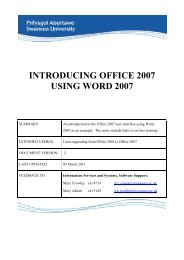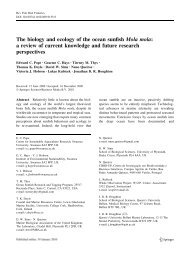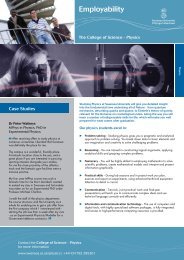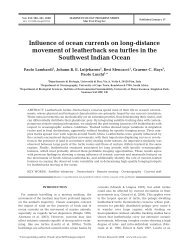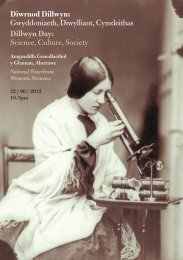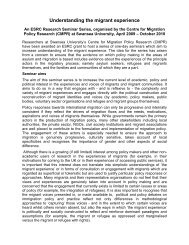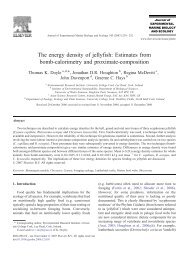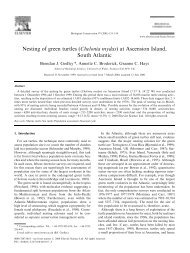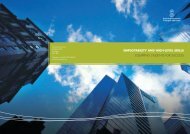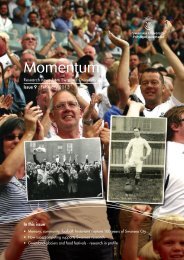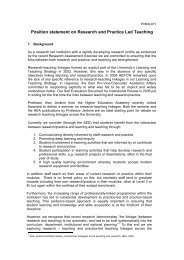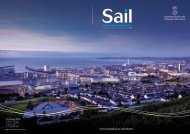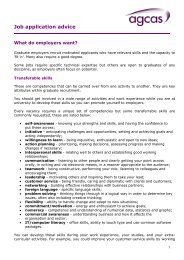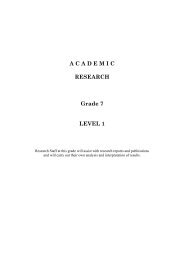ESRC Seminar Series - Briefing Paper 5 - Swansea University
ESRC Seminar Series - Briefing Paper 5 - Swansea University
ESRC Seminar Series - Briefing Paper 5 - Swansea University
Create successful ePaper yourself
Turn your PDF publications into a flip-book with our unique Google optimized e-Paper software.
• Identifying what was missing -<br />
• National voice<br />
• Resources and skills<br />
• Practical information and tools from NGOs and researchers<br />
Maryam summarized the role of the MRN as providing support to organisations by<br />
establishing networks, identifying issues and influencing the outcome of policy discussions.<br />
MRN sees its role less as one of representing migrants but rather as a facilitator, promoting<br />
and enabling dialogue between organisations at both a local and national level and providing<br />
strategic analysis of national policy. Within this broader remit, a key aim of MRN is to<br />
facilitate discussions between different organisations and enable local groups to act outside<br />
of their immediate contacts. This led to the development of the MRN’s Communication<br />
Strategies Project. Maryam explained that the Communication Strategies Project is a pilot<br />
project which aims to:<br />
• Develop the skills and capacity of activists and organisations working at regional level<br />
to communicate messages in support of migrants;<br />
• Establish an interactive web-based platform for communications which support<br />
progressive debate on migration; and<br />
• Feed regional perspectives on migrants’ rights into wider policy and advocacy<br />
debates in the UK;<br />
The Project aims ultimately to change the debate in the UK by empowering local activists to<br />
build regional and national networks of migrant organisations.<br />
Following a detailed explanation of how the project intends to achieve its goals, Maryam<br />
returned to her opening question, namely ‘what should we aim for in our networks?’ and<br />
presented a number of potential answers for the group to consider. Maryam concluded by<br />
outlining the on-going aims of the MRN at both the local and national level, stating that<br />
“ultimately doing this will establish a progressive narrative and promote migrants’ rights and<br />
needs and really hold up something in opposition to what is prevailing”.<br />
‘Voices for change: transforming how migrants are seen and heard in the media’<br />
- Nazek Ramadan, Migrant Voice<br />
Nazek Ramadan is the founder and editor of the Migrant Voice organisation. Nazek<br />
described Migrant Voice as a migrant-led organisation set up to develop the skills, capacity<br />
and confidence of members of migrant communities, to enable them to author and produce<br />
their own media representations in order to influence policy making, and as a counter to<br />
the very successful but negative media campaigns of organisations such as Migration Watch.<br />
Although Migrant Voice has a number of expert members it considers itself to be a platform<br />
primarily for those migrants whose voices are not usually heard.<br />
Nazek outlined the circumstances that led to the publication of the first issue of the Migrant<br />
Voice Newspaper. The target audience of this publication was the general public, with the<br />
aim of increasing the visibility of migrants whilst countering the prevailing negative public<br />
opinion. The newspaper, written by migrants, about migrants and migration related matters,<br />
was distributed for free across London by those who had authored it. An important<br />
element of this method of distribution was that it enabled the public to ask questions of, and<br />
engage directly with the journalists about the material. As Nazek remarked: “You hear them<br />
better when you look them in the eye. You hear anyone better when you look them in the<br />
eye but we are not visible and people don’t see us”.<br />
Nazek outlined Migrant Voice’s plans for future work and concluded with the salient words<br />
of President Obama: “Change will not come if we wait for some other person or some<br />
other time. We are the change that we seek”.



